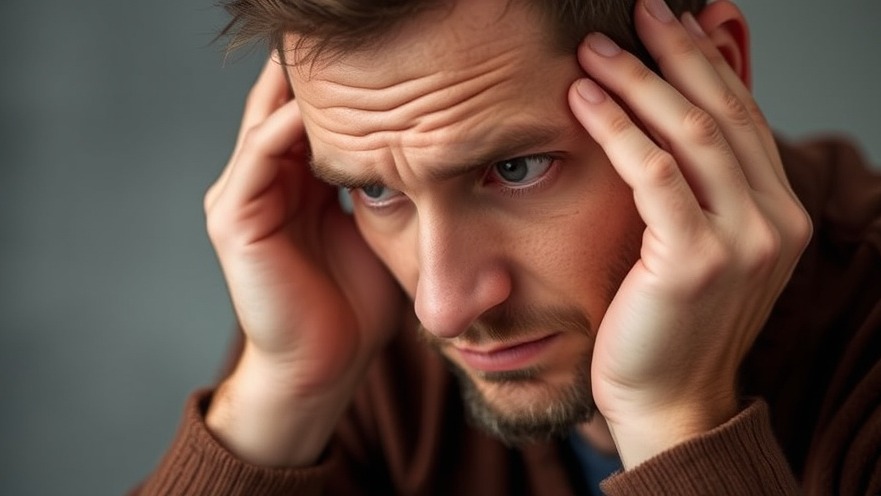
Understanding Anxiety: Breaking the Silence Among Men
Anxiety can sneak into the lives of men in ways that aren’t immediately obvious. While studies indicate that women are more frequently diagnosed with anxiety disorders, this doesn't mean men are immune to its impacts. In fact, societal pressures may lead men to mask their feelings, making anxiety harder to identify. Surprisingly, many men may exhibit symptoms without recognizing them, leading to a greater risk of substance abuse and other mental health challenges.
Five Symptoms of Anxiety That Men Often Experience
Understanding how anxiety manifests in men can be crucial for recognizing when it becomes an issue. Here are five common symptoms that disproportionately impact men:
1. Fear of Dating and Relationships
Many men struggle with dating anxiety, which can be intensified by societal expectations that they should take the lead. Studies show that men with social anxiety disorder are more likely to be single or separated, leading to feelings of inadequacy. This fear can turn dating into a performance, which can be daunting. The stigma surrounding being single can work against men, as they might fear rejection and worry about their social status, especially as they get older.
2. Substance Abuse as a Coping Mechanism
Research shows that men are more likely to turn to alcohol and drugs to cope with anxiety than women. A study from Columbia University highlights that men often see alcohol as a socially acceptable method of self-medicating. This is troubling, as turning to substances can lead to addiction, making the original anxiety even more challenging to manage in the long run.
3. Anger as a Mask for Anxiety
Another common manifestation of anxiety in men is expressed anger. Many men find it difficult to articulate their anxious feelings and thus exhibit irritation or aggression instead. This not only impacts their interpersonal relationships but can also fuel a cycle of anxiety and further emotional struggles.
4. Physical Symptoms of Anxiety
While women may express anxiety through emotional words, men often exhibit it through physical symptoms like increased heart rates, sweating, or digestive issues. It’s important to recognize that these physical expressions are valid signals of anxiety that should not be dismissed.
5. The Fear of Vulnerability
Men are often socialized to suppress their emotions and avoid vulnerability. This conditioning can lead to perceptions that expressing anxiety is a sign of weakness. Consequently, men may internalize their feelings, which ultimately exacerbates their mental health struggles.
Inspiring Change: A Call to Acknowledge Feelings
Addressing anxiety among men starts with breaking down the barriers of stigma and encouraging open conversations. This can lead not only to greater awareness but also empowerment for men to seek help when needed. Mental health professionals emphasize the importance of recognizing and articulating feelings rather than masking them with anger or substance use.
Practical Steps for Managing Anxiety
Here are some actionable insights for men to manage anxiety effectively:
Engage in Physical Activities: Exercise serves as a powerful tool for managing anxiety, boosting endorphins, and promoting overall mental well-being.
Join Support Groups: Sharing experiences with others who understand can offer relief and foster a sense of belonging.
Seek Professional Help: There’s no shame in consulting a therapist or counselor; they can provide tailored strategies for anxiety management.
Conclusion: The Importance of Opening Up
In conclusion, recognizing anxiety symptoms is crucial for men's mental health. By addressing feelings and embracing vulnerability, men can significantly enhance their well-being. If you or someone you know is struggling with anxiety, don’t hesitate to reach out for help. Addressing these issues early can lead to a healthier life and more meaningful relationships.
 Add Row
Add Row  Add
Add 




Write A Comment